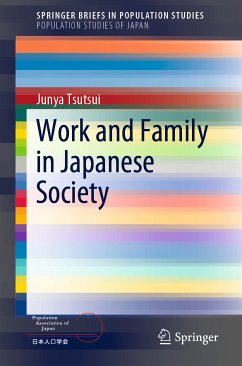Further to this rather common explanation, which could also be applied to other low-fertility societies such as Germany and Italy, the author presents an original view. Japan has had its own momentum in holding on to its strong "men as breadwinners and women as housekeepers" model by creating a unique regime, namely, a Japanese model of a welfare society. This regime places special emphasis on the welfare provided by private companies and family members instead of by the government. Private firms are expected to secure men's jobs and income to the greatest extent, taking advantage of Japanese employment customs. On the other hand, women are expected to provide care for their family members. The book argues that the familialist orientation is still dominant in Japan and is repeatedly reinforced in the policy context.
Dieser Download kann aus rechtlichen Gründen nur mit Rechnungsadresse in A, B, BG, CY, CZ, D, DK, EW, E, FIN, F, GR, HR, H, IRL, I, LT, L, LR, M, NL, PL, P, R, S, SLO, SK ausgeliefert werden.









